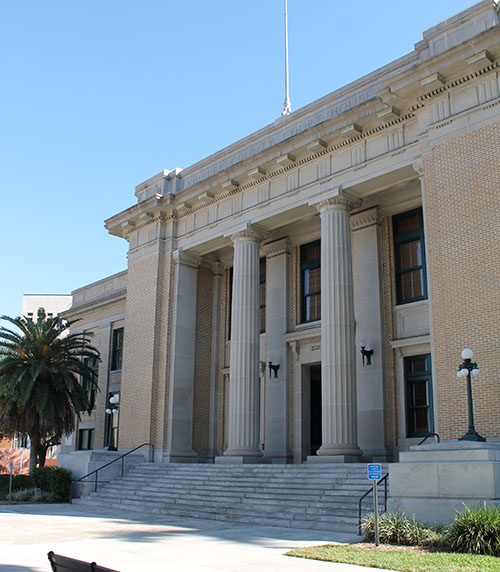Florida lawmakers voted unanimously in both chambers last year to create a statewide system under the Department of Health (DOH) to send warnings and issue beach, canal and pool closures within 24 hours of a safety issue.
The bipartisan measure known as the “Safe Waterways Act” then went to Gov. Ron DeSantis, who vetoed it. He said the bill suffered from “a fatal infirmity” because it granted DOH authority to supersede local jurisdictions on beach operations.
So, two of the legislation’s three sponsors, Doral Republican Sen. Ana Maria Rodriguez and Highland Beach Republican Rep. Peggy Gossett-Seidman, considered the Governor’s feedback when crafting a more modest proposal for the 2025 Session.
The result was twin bills (SB 156, HB 73), which would have transferred water sampling duties from DOH to the Department of Environmental Protection (DEP), created new reporting requirements and a publicly accessible interagency database, and established a process to close public bathing areas where contaminations occur.
Gossett-Seidman said this year’s version wasn’t as costly as its predecessor and placed closure authority with a more appropriate agency. But despite those changes, SB 156 and HB 73 were ignored in their respective chambers.
With just over two weeks remaining before Sine Die, both are on track to die unheard. Meanwhile, complaints of rampant water pollution and Florida’s lax water quality regulations continue to mount.
“This year, the focus has not been on water, which is OK,” Gossett-Seidman told Florida Politics this week.
“The Everglades is going well. There’s a term for when people become engaged on an issue just because someone files a bill, and it seems as if that’s already happening in my county and others. I’ve heard back. People are paying better attention to their water management and water emergency issues.”
That’s not to say she’s given up on her legislation. Gossett-Seidman said she’s been talking with DeSantis’ Office to further fine-tune the bill’s language so it’s more palatable.
“We’ve all been in discussion and decided we’re going to need another year and through the Summer to work on it. I’m fine with the extra time. I’ve got a lot of organizations assisting outside of the government agencies, and everyone wants the same results. They’re just not sure which way to channel the responsibility,” she said.
“It’s been acknowledged that the agencies are working harder on addressing contaminations locally and through their counties. So, I’m fine with hanging on to it another year. The fact it’s out there has been a blessing; it’s had some excellent effects so far.”
SB 156 was to first be heard in the Senate Health Policy Committee, chaired by Winter Haven Republican Sen. Colleen Burton. HB 73 was first referred to the House Natural Resources and Disasters Subcommittee, chaired by Bonita Springs Republican Rep. Adam Botana.
On a somewhat related note, the Senate this month passed a bill (SB 56) by Miami Republican Sen. Ileana Garcia to set steep penalties for weather manipulation and geoengineering, require DEP to investigate complaints and compel airport operators to report suspicious activities.
DeSantis released a video backing the legislation while complaining that the House “gutted” its lower-chamber analog (HB 477) by Tallahassee Republican Rep. Kevin Steele so that it “would actually codify the practice of geoengineering and weather modification.”
“People got a lot of kooky ideas that they can get in and put things in the atmosphere to block the sun and save us from climate change,” DeSantis said. “We’re not playing that game in Florida.”
Post Views: 0

 Politics8 years ago
Politics8 years ago
 Entertainment8 years ago
Entertainment8 years ago
 Entertainment8 years ago
Entertainment8 years ago
 Entertainment8 years ago
Entertainment8 years ago
 Tech8 years ago
Tech8 years ago
 Tech8 years ago
Tech8 years ago
 Tech8 years ago
Tech8 years ago
 Tech8 years ago
Tech8 years ago











